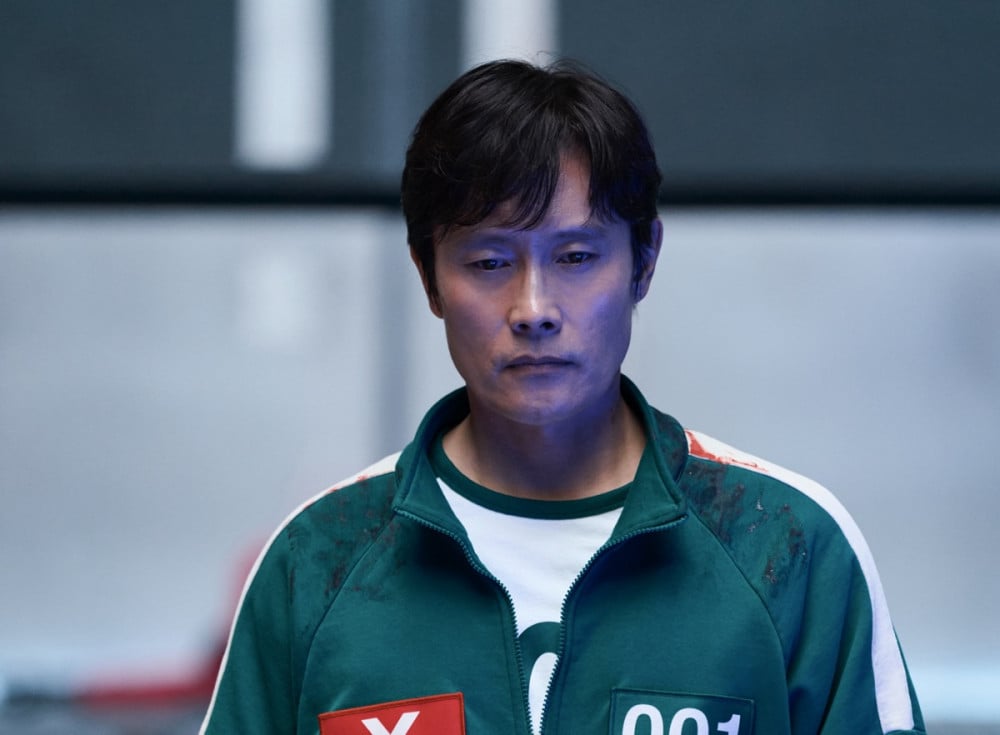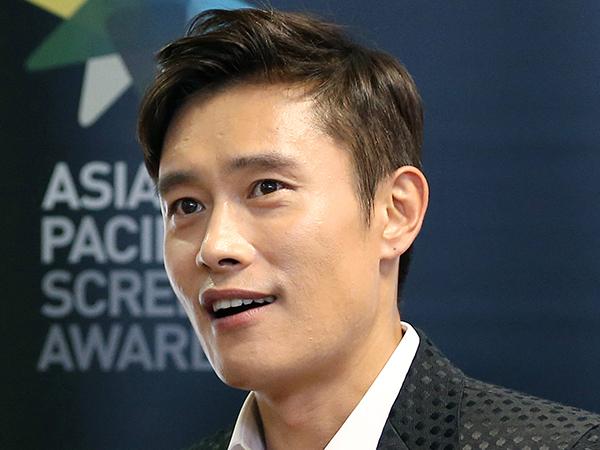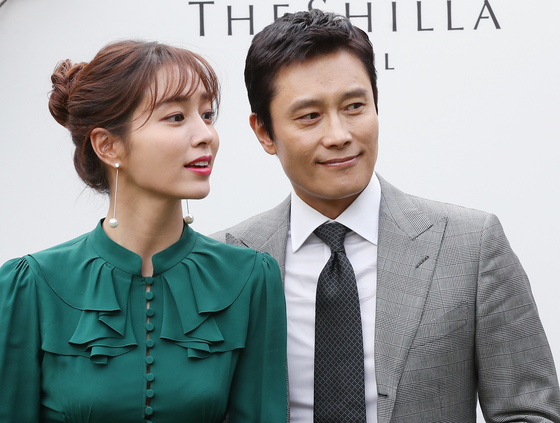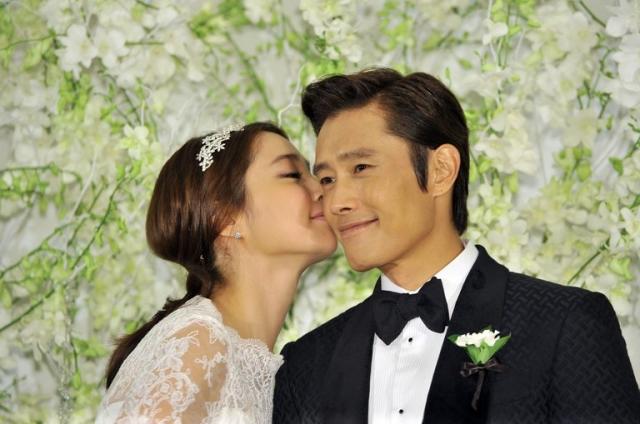When you think of Korean actors who've successfully crossed over to Hollywood, one name stands out like a beacon in the entertainment industry: Lee Byung-hun. This isn't just another success story about a talented performer—it's the remarkable journey of a man who transformed from a privileged background into one of Asia's most versatile and internationally recognized actors. From his early days in romantic Korean dramas to wielding ninja swords as Storm Shadow in Hollywood blockbusters, Lee Byung-hun has consistently proven that true artistry knows no boundaries.

From Wealth to Stardom: The Unexpected Beginning
Here's something that might surprise you: Lee Byung-hun didn't start his career out of financial necessity. Born into a wealthy family in 1970, he could have easily lived a comfortable life without ever stepping foot on a film set. His father was a successful businessman, and the family had no shortage of resources. But sometimes, the most compelling stories begin with choices made from passion rather than necessity.
When Lee Byung-hun decided to pursue acting in the early 1990s, it wasn't because he needed the money—it was because he felt called to tell stories. This foundation of genuine passion rather than desperation would later become evident in the fearless way he approached challenging roles throughout his career. It's this authenticity that audiences around the world have connected with, whether they're watching him in a Korean thriller or a Hollywood action film.
The Romantic Lead Era: Building a Foundation
Before he became known for his intense action roles and complex villain characters, Lee Byung-hun cut his teeth on romantic dramas. His early work in Korean television and film established him as a leading man with serious acting chops. But even then, there was something different about his approach—a depth and intensity that suggested he was capable of much more than conventional romantic roles.
These early experiences weren't just stepping stones; they were crucial in developing the emotional range that would later make his transition to more complex characters so seamless. When you watch his later work in films like "A Bittersweet Life" or his recent appearance in "Squid Game," you can see traces of that emotional foundation he built during his romantic lead days.
The Breakthrough: A Bittersweet Life and Korean Cinema Revolution
2005 marked a turning point not just for Lee Byung-hun, but for Korean cinema as a whole. "A Bittersweet Life" wasn't just another crime thriller—it was a masterclass in stylized violence and emotional complexity. Lee Byung-hun's portrayal of Sun-woo, a loyal gangster caught between duty and conscience, showed international audiences that Korean cinema could produce sophisticated, visually stunning films that rival anything coming out of Hollywood.

What made this performance so compelling wasn't just the action sequences or the slick cinematography—it was Lee Byung-hun's ability to convey volumes of emotion with minimal dialogue. He could communicate betrayal, loyalty, and inner turmoil with just a glance or a subtle change in posture. This film essentially announced to the world that here was an actor who could carry an international film.
The Ripple Effect
The success of "A Bittersweet Life" created a ripple effect that extended far beyond Lee Byung-hun's career. It helped establish Korean cinema as a force to be reckoned with on the international stage, paving the way for later successes like "Parasite" and "Squid Game." Lee Byung-hun didn't just ride the Korean Wave—he helped create it.
Hollywood Calling: Storm Shadow and Beyond
When Lee Byung-hun landed the role of Storm Shadow in "G.I. Joe: The Rise of Cobra" in 2009, it represented more than just a career milestone—it was a cultural moment. He became one of the first Korean actors to secure a significant role in a major Hollywood blockbuster, and he did it by bringing something uniquely his own to the character.
Storm Shadow could have been just another masked villain, but Lee Byung-hun infused the character with a complexity that elevated the entire film. Even behind the mask, his physical presence and martial arts skills spoke volumes. When the mask came off, audiences saw not just a Korean actor in a Hollywood film, but a performer who belonged on that stage.
Breaking Barriers
What's particularly impressive about Lee Byung-hun's Hollywood success is how he managed to maintain his identity while adapting to a completely different filmmaking culture. He didn't try to become someone else—he brought his Korean sensibilities, his approach to character development, and his unique screen presence to Hollywood productions.
This approach has served him well in subsequent Hollywood projects. Whether he's playing a villain in "Red 2" or bringing gravitas to "The Magnificent Seven," he's consistently shown that Asian actors don't need to compromise their identity to succeed in Western films.
The Squid Game Phenomenon: A Global Reset
Just when you thought Lee Byung-hun's career had reached its peak, along came "Squid Game" in 2021. His portrayal of Hwang In-ho, also known as the Front Man, reminded the world why he's considered one of Korea's finest actors. Here was a performance that was simultaneously mysterious and commanding, brutal and oddly sympathetic.

What made his "Squid Game" performance so memorable wasn't just the shocking reveal of his character's identity—it was the way he managed to convey the character's internal struggle even while serving as the face of the game's brutal system. It's this kind of nuanced performance that has kept him relevant across different decades and genres.
The Global Impact
The worldwide success of "Squid Game" introduced Lee Byung-hun to a whole new generation of viewers. Suddenly, people who had never heard of Korean cinema were seeking out his other films. His back catalog of work became a gateway for international audiences to discover the richness of Korean filmmaking.
Recent Projects and What's Next
Lee Byung-hun's recent work continues to showcase his range and commitment to challenging roles. "The Match," his 2025 biographical sports drama about the legendary Go player Lee Chang-ho, represents another evolution in his career. Here, he's not relying on action sequences or thriller elements—he's diving deep into the psychological complexities of a real-life figure.
This choice reflects something important about Lee Byung-hun's approach to his career: he's not content to rest on his laurels or stick to safe choices. At this stage of his career, he could easily coast on his reputation, but instead, he continues to seek out roles that challenge him and push Korean cinema forward.
The Personal Side: Marriage and Balance
Behind the intense characters and international success is a man who values family and stability. His marriage to actress Lee Min-jung in 2013 marked a new chapter in his personal life, and their relationship has remained remarkably stable despite the pressures of celebrity. They've managed to maintain privacy while still being public figures, which is no small feat in today's entertainment landscape.
This personal stability seems to have positively influenced his professional choices. His recent roles show a maturity and depth that comes from someone who has found balance between his public and private life. It's allowed him to take on more complex, layered characters without losing himself in the process.
The Acting Style That Sets Him Apart
What makes Lee Byung-hun unique isn't just his versatility—it's his approach to character development. He's known for his meticulous preparation and his ability to find the humanity in even the most extreme characters. Whether he's playing a romantic lead or a cold-blooded villain, he brings a psychological depth that makes his characters feel real and relatable.
His method acting techniques involve extensive research and physical preparation. For "The Match," he spent months studying the game of Go and the specific mannerisms of Lee Chang-ho. For his action roles, he commits to intense physical training that goes beyond what's required for the stunts—he wants to embody the character completely.
The Transformation Process
Perhaps most impressively, Lee Byung-hun has mastered the art of transformation. He doesn't just change costumes between roles—he fundamentally shifts his energy, his posture, and his entire screen presence. This chameleon-like ability has allowed him to avoid being typecast, even as he's become one of the most recognizable faces in Asian cinema.
Awards and Recognition: The Numbers Tell the Story
Lee Byung-hun's trophy case reads like a roadmap of his career evolution. From early recognition at Korean film festivals to international acclaim at Cannes, his awards reflect not just personal achievement but the growing recognition of Korean cinema on the world stage.
His Blue Dragon Film Award for "A Bittersweet Life" was significant not just for him personally, but for establishing Korean thrillers as legitimate art forms. His Screen Actors Guild nominations for "Squid Game" represent the global reach his work has achieved. These aren't just individual accolades—they're milestones in the international recognition of Korean entertainment.
The Broader Impact: Asian Representation in Hollywood
Lee Byung-hun's success has implications that extend far beyond his individual career. He's been a trailblazer for Asian representation in Hollywood, proving that Asian actors can carry major productions without compromising their cultural identity. His success has opened doors for other Korean and Asian actors to follow.

But perhaps more importantly, he's shown that audiences are hungry for authentic, culturally diverse storytelling. His success in both Korean and Hollywood productions demonstrates that good storytelling transcends cultural boundaries.
What We Can Learn from Lee Byung-hun's Journey
There are several key takeaways from Lee Byung-hun's remarkable career trajectory that apply beyond the entertainment industry:
First, authenticity matters more than conformity. Instead of trying to fit into Hollywood's expectations of what an Asian actor should be, he brought his own unique perspective and skills to every role. This authenticity has been key to his longevity and success.
Second, continuous evolution is essential. Lee Byung-hun has never been content to repeat himself. Each role has been an opportunity to grow and explore new facets of his craft. This commitment to growth has kept him relevant across different decades and changing industry trends.
Third, cultural pride and international success aren't mutually exclusive. Lee Byung-hun has shown that you can achieve global recognition while remaining true to your cultural roots. In fact, his Korean identity has been an asset in his international career, not a hindrance.
Looking Forward: The Future of Korean Cinema
As Lee Byung-hun continues to take on new challenges and explore different genres, he's also serving as a mentor and inspiration for the next generation of Korean actors. His success has helped establish Korean cinema as a major force in global entertainment, and his continued work ensures that this influence will only grow.
The Korean Wave shows no signs of slowing down, and Lee Byung-hun remains at its forefront. His upcoming projects and continued international collaborations suggest that the best may be yet to come.
Conclusion: A Legacy Still Being Written
Lee Byung-hun's story is far from over. At 55, he's at the height of his powers, with the experience to take on any role and the passion to continue pushing boundaries. His journey from a wealthy young man who chose acting over comfort to an international star who's helped redefine what it means to be a Korean actor in the global entertainment industry is nothing short of remarkable.
What's most inspiring about Lee Byung-hun isn't just his individual success—it's the way he's used that success to elevate Korean cinema and create opportunities for others. He's proven that with talent, dedication, and authenticity, it's possible to achieve global recognition while remaining true to your roots.
As audiences around the world continue to discover the depth and diversity of Korean entertainment, Lee Byung-hun remains a perfect ambassador for the artistry and innovation that Korean cinema has to offer. His legacy isn't just about the roles he's played—it's about the doors he's opened and the barriers he's broken.
Whether you're a longtime fan or just discovering his work through "Squid Game," Lee Byung-hun's filmography offers something for everyone. From intense thrillers to action blockbusters to thoughtful dramas, his body of work represents the best of what contemporary cinema has to offer. Take some time to explore his incredible range of performances—you'll discover why he's considered one of the most compelling actors of his generation.
